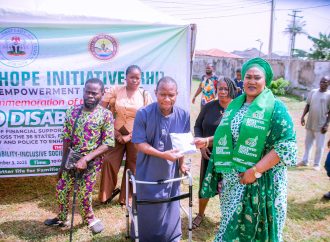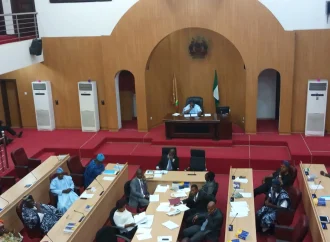“Sanwo-Olu Vows to End Generator Reliance as Lagos Pursues Clean Energy Future” Lagos State Governor Babajide Sanwo-Olu has declared the state’s readiness to transition into a 24/7 clean energy economy, marking a major policy shift in the face of overwhelming reliance on self-generated electricity. The bold declaration came during the maiden Lagos Energy Summit, where
“Sanwo-Olu Vows to End Generator Reliance as Lagos Pursues Clean Energy Future”
Lagos State Governor Babajide Sanwo-Olu has declared the state’s readiness to transition into a 24/7 clean energy economy, marking a major policy shift in the face of overwhelming reliance on self-generated electricity. The bold declaration came during the maiden Lagos Energy Summit, where the administration revealed staggering data on the city’s energy consumption and environmental impact.
According to Lagos State Commissioner for Energy and Mineral Resources, Biodun Ogunleye, residents of Lagos spend an estimated ₦14 trillion annually fueling approximately 4.5 million generators. These generators guzzle around 16 billion litres of fuel every year, releasing over 38 million tonnes of carbon dioxide — more than the total emissions of Togo, Rwanda, and Gabon combined.
The figures were part of a joint study conducted with Sustainable Energy for All (SEforALL), which illustrated the depth of Lagos’ dependence on generator-based power. Ogunleye revealed that 72% of households in the state own at least one generator, while 94% of Micro, Small and Medium Enterprises (MSMEs) rely on them daily. Furthermore, 76% of market clusters are unable to operate without generator power.
APC Secretary Bashiru Emphasizes Capitalist Energy Model Amid Electricity Bill Surge”
Clean Energy as a Catalyst for Economic Growth
Governor Sanwo-Olu emphasized that the state’s commitment to a clean energy transition is not just environmental — it’s economic. Speaking at the summit, he highlighted the deadly cost of the current system, citing a 2021 report from the Lagos State Environmental Protection Agency (LASEPA) which estimated that about 30,000 people die each year in Lagos due to carbon monoxide poisoning from generators.
“The era of excuses in Nigeria’s power sector is over,” Sanwo-Olu declared. “We are ready to lead this nation in delivering reliable, affordable, and clean electricity to our people.”
The governor reiterated his administration’s goals under the T.H.E.M.E.S.+ agenda, which prioritizes energy reform, sustainability, and digital innovation. A major milestone in that journey was the passage of the Lagos Electricity Law in December 2024. This legislation laid the foundation for the “Clean Lagos Electricity Market,” a framework aimed at reducing pollution, boosting renewable energy investment, and ensuring round-the-clock access to power.
Ogunleye added that recent policy shifts, including the 2023 Electricity Act signed by President Bola Tinubu, had empowered Lagos and other states to take control of their electricity markets, further accelerating decentralization and innovation in energy delivery.
Governor Sanwo-Olu issued a call to action, inviting stakeholders — from energy professionals to regulators and global investors — to join Lagos in unlocking access to sustainable energy. He stressed that this shift is no longer a luxury but a necessity tied directly to industrial development, job creation, and improved public health.
With a strong policy framework now in place, Lagos is positioning itself not only as a national leader in clean energy adoption but also as a model for African megacities grappling with similar challenges.



















Leave a Comment
Your email address will not be published. Required fields are marked with *